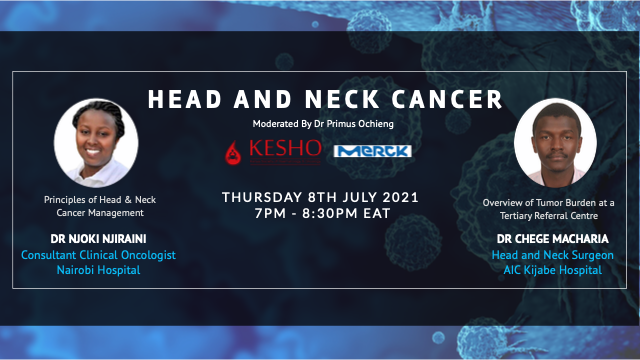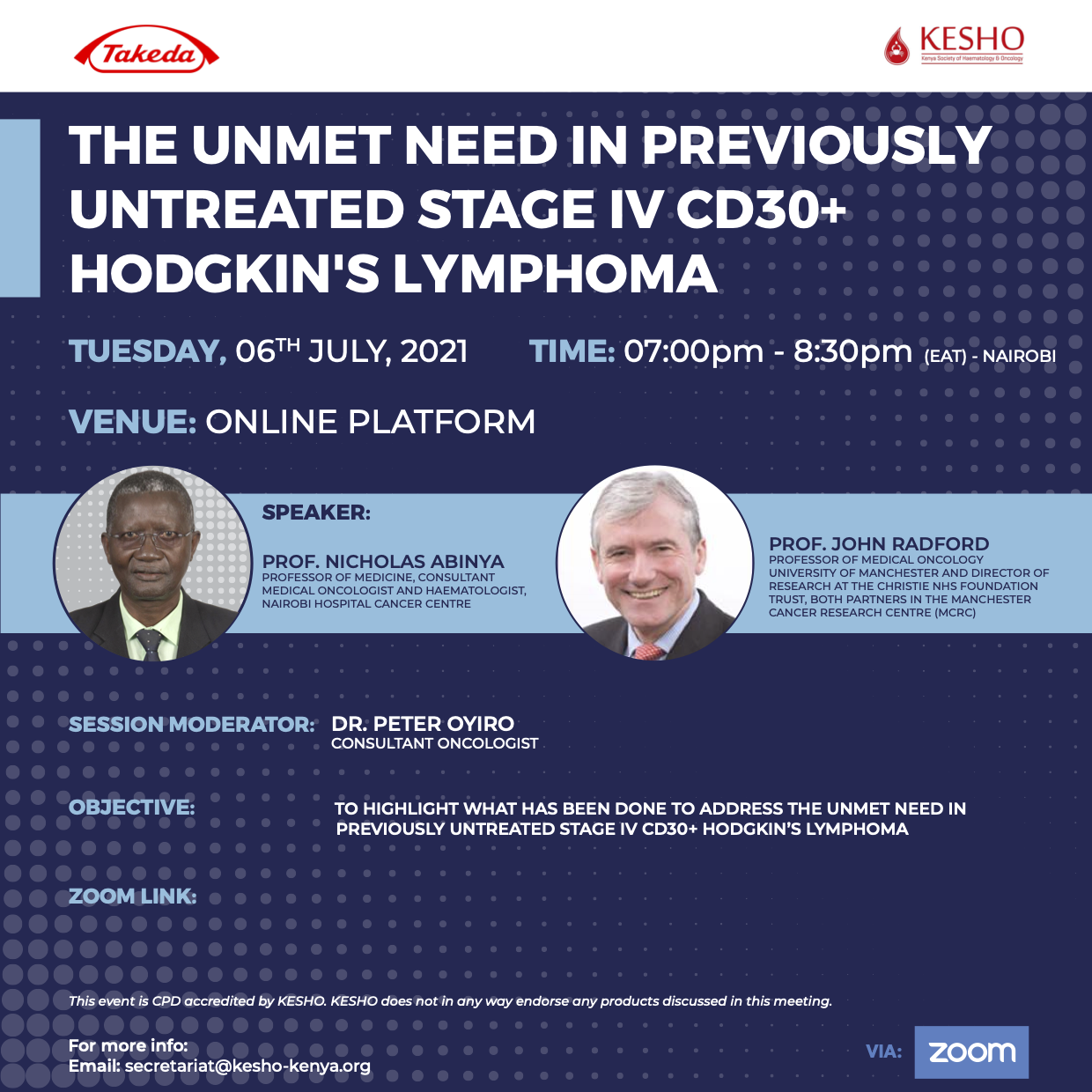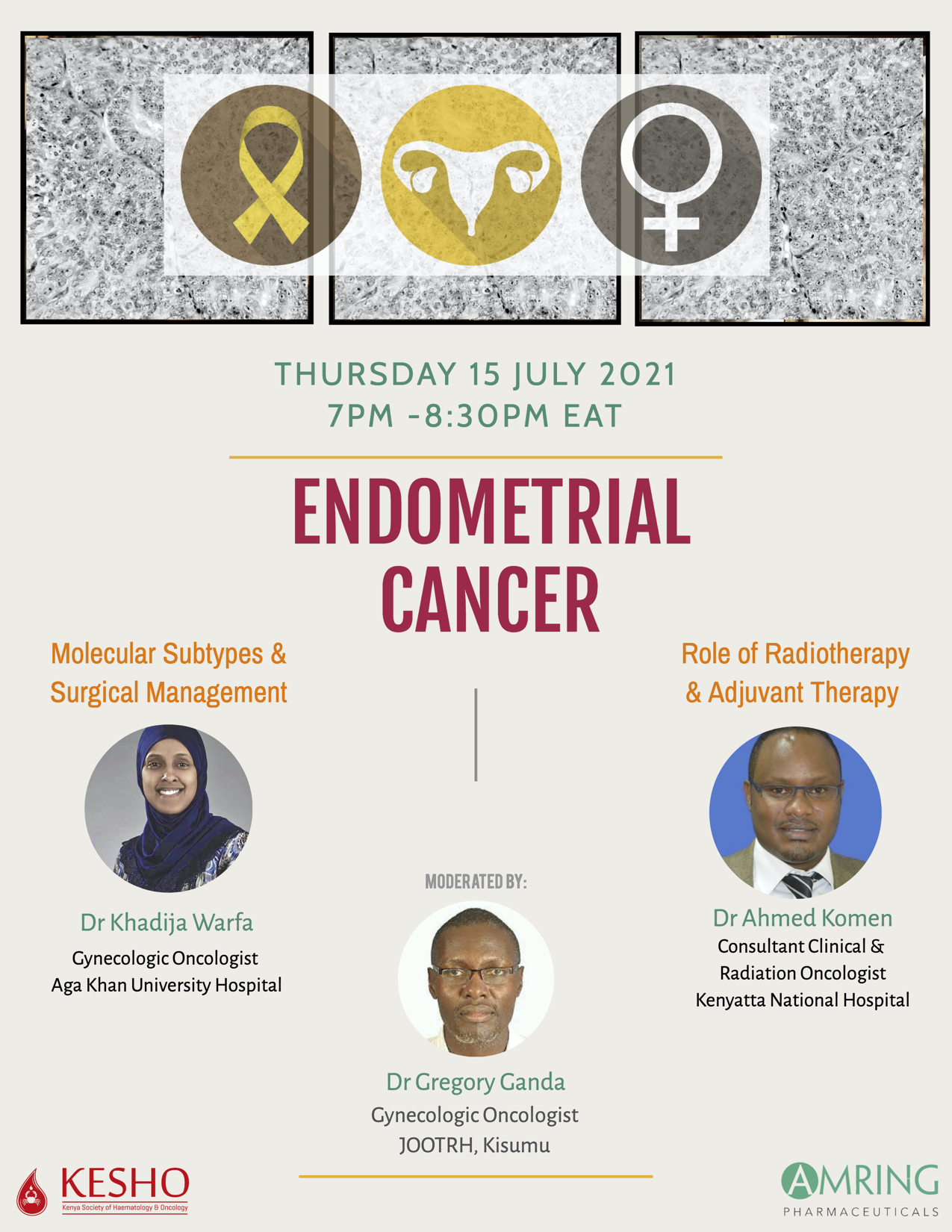
- This event has passed.
Head and Neck Cancer
Event Navigation

Moderator: Dr. Primus Ochieng, Programme Director of MMed Radiation Oncology training at the University of Nairobi. He is both a Lecturer and a Consultant Clinical Oncologist at Kenyatta National Hospital
Sponsor: Merck
Presenters:
- Dr. Njoki Njiraini, Consultant Clinical Oncologist at The Nairobi Hospital
- Dr. Chege Macharia, Head and Neck Surgeon at AIC Kijabe Hospital
Head and neck cancers encompass a variety of cancers. The risk factors for their oncogenesis include lifestyle, environmental factors, age (over 45 years), and gender (which affects more males than females). To reduce the risk, health education should focus on proper feeding habits, human papillomavirus vaccination, use of appropriate personal protective equipment (PPE) at places of work, use of sunscreen by the population at risk, and good oral hygiene, in addition to annual dental check-ups. Local clinical examination of the tumor size is necessary. Tissue biopsy and imaging are necessary for correct staging and to select patients who would benefit from chemotherapy. Consequently, the choice of therapy should consider patient and disease factors and the functional outcomes. Clinical examination can give a lot of information about the patient. Proper management of head and neck (H and C) tumors is hindered by late-stage patient presentation, socioeconomic challenges, and resource strain on health care infrastructure. To overcome these challenges, multidisciplinary teams (MDT) and contextualized national management guidelines have been established to help in the management of H and C cancers. Dentists are an important part of the MDT as they help in diagnosis and patients follow-up after treatment, to check on their dental health. Surgery for H and C cancers should preserve organs. Although reconstruction surgery is necessary, it is more common in the west, but not available in our African setup due to scarcity of resources. Patients who develop mucositis after radiation must be well managed since they have challenges with feeding and drinking, hence are likely to become dehydrated and malnourished. The future of H and C management will involve training and fellowship programs and homegrown solutions. Merck is offering cetuximab (Erbitux), a monoclonal antibody that targets the epidermal growth factor receptor (EGFR) and is active in a variety of EGFR-expressing tumors.

